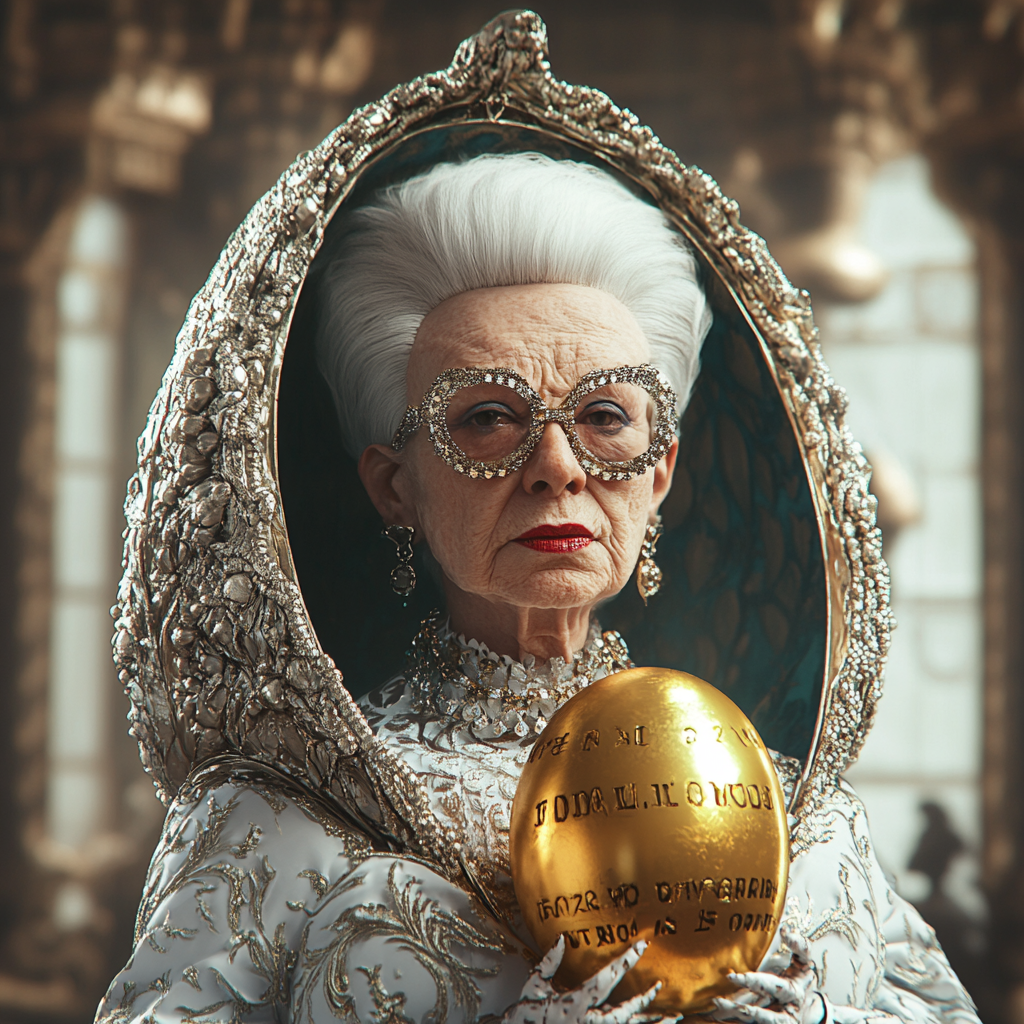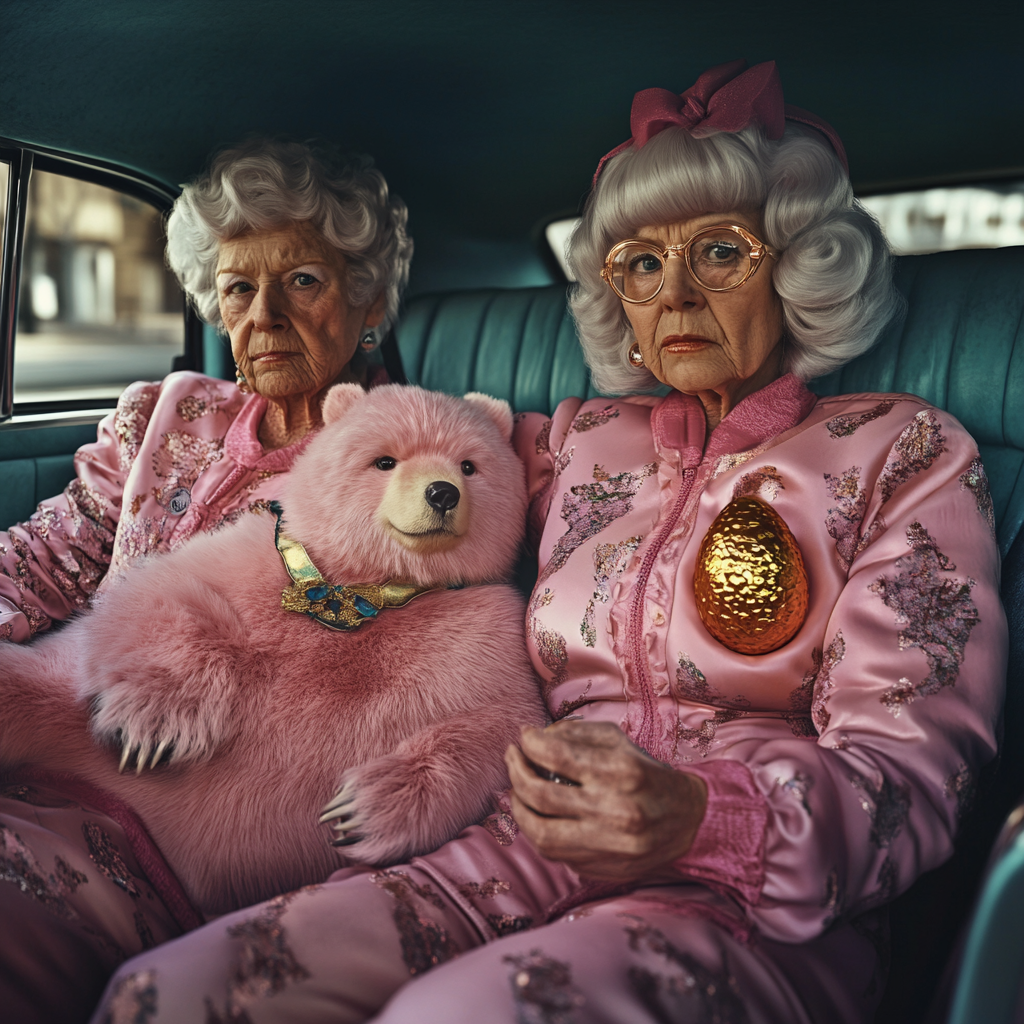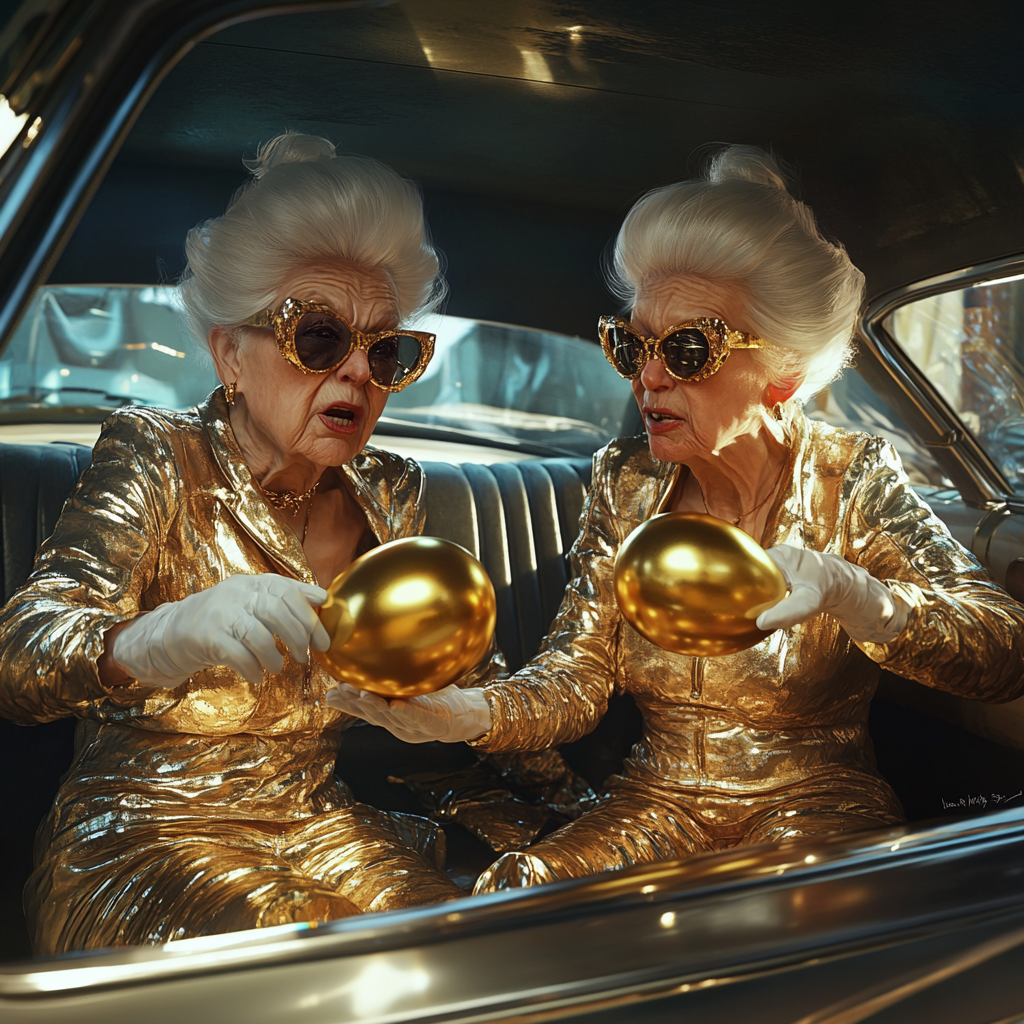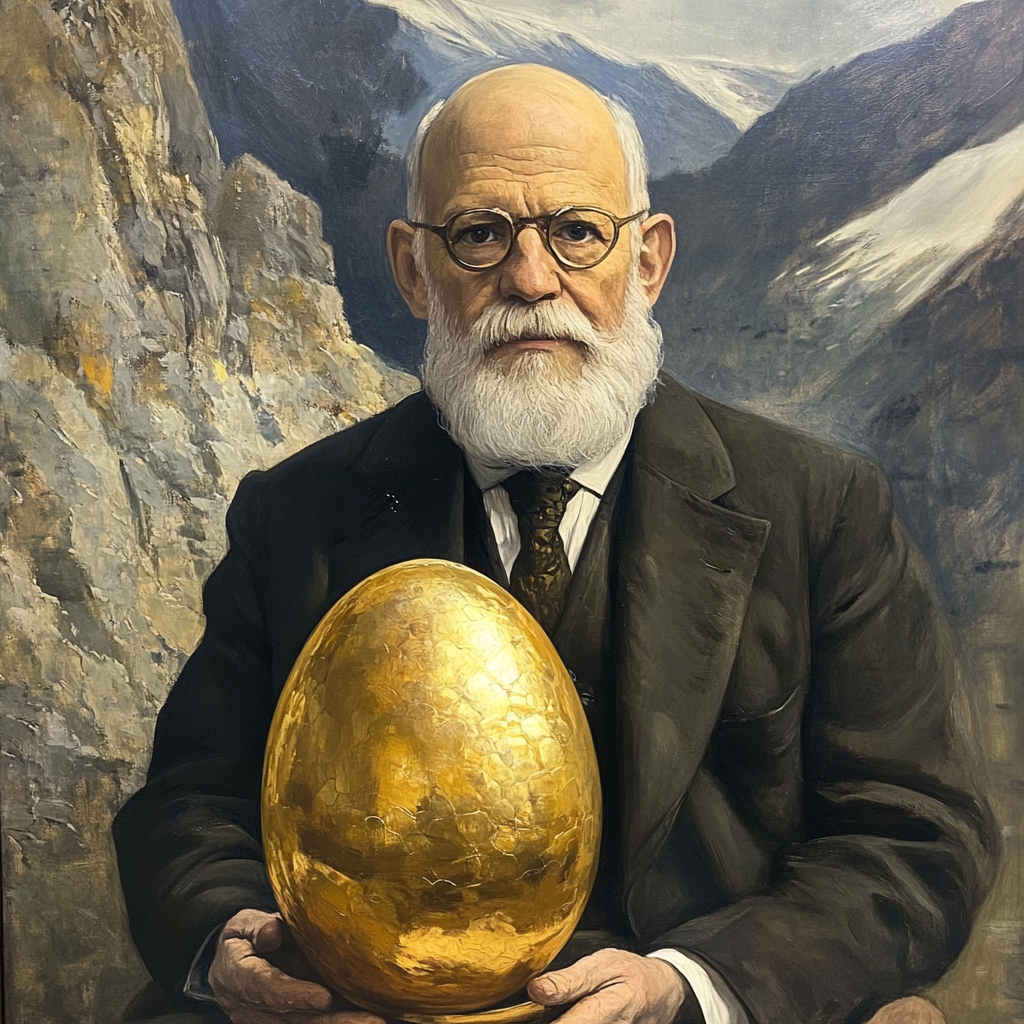Article by TWGE Redaktion
We Need Spiritual Grandmothers: Reclaiming the Wisdom of the Crone
For centuries, society has systematically devalued women, particularly older women, through narratives that undermine their wisdom, power, and spiritual significance. This cultural shift has stigmatized the natural transitions of a woman’s life—especially menopause—by framing them as illnesses or as the end of relevance and vitality. However, this could not be further from the truth. Now more than ever, we need spiritual grandmothers: wise women who embody the ancient archetype of the Crone, offering their guidance and grounded presence to a world in turmoil.
Magazines and media outlets continue to thrive by perpetuating outdated narratives about women, embedding them deeply into our collective unconscious. Headlines like “Coping with Menopause,” “Surviving the Change,” or “How to Stay Youthful Post-Menopause” dominate the discourse, framing this natural life transition as a difficult and undesirable phase. These narratives reinforce fear and insecurity, portraying aging as a decline rather than a transformation. From a spiritual perspective, however, the truth is profoundly different. A woman in menopause is at the peak of her power, entering a phase of unparalleled wisdom, intuition, and creativity. This stage, often dismissed as an “end,” is actually a profound beginning—a rite of passage into the archetype of the Crone, where the distractions of fertility and societal expectations fall away, allowing her to embody her fullest potential. Far from being a loss, menopause is an awakening to deeper spiritual truths and the sacred cycles of life. It is a time when a woman’s connection to herself, Gaia, and the universal mysteries reaches its zenith, offering her the opportunity to guide, heal, and inspire her community.



The Devaluing of Older Women: A Perfidious Narrative
In patriarchal societies, the worth of women has long been tied to their physical beauty and reproductive capacity. This commodification of women’s bodies has led to the perception that, upon entering menopause, a woman’s societal value is diminished. However, this devaluation is not simply cultural—it has intellectual roots that have been shaped, reinforced, and legitimized by influential figures and systems, including the work of Sigmund Freud and the rise of industrialized medicine. Together, these forces have created a world that dismisses the transformative power of menopause and ignores the vast reservoir of wisdom that older women possess.
Freud and the Pathologization of Women
Sigmund Freud, often referred to as the father of modern psychology, played a pivotal role in shaping societal attitudes toward women and their bodies. Freud’s theories, many of which are now criticized, were deeply rooted in the patriarchal context of his time. He introduced the idea of “hysteria,” a supposed psychological condition primarily attributed to women, which he linked to the uterus (the term hysteria itself comes from the Greek word hystera, meaning womb). Freud pathologized normal expressions of emotion, sexuality, and bodily experience in women, framing them as signs of instability or illness.
Freud also perpetuated the notion that women were intellectually inferior to men. He asserted that women experienced “penis envy” and described the female brain as less developed than its male counterpart. These ideas not only legitimized the exclusion of women from intellectual and professional spaces but also contributed to the societal infantilization of women at all stages of life. As they aged, women were further marginalized, their wisdom dismissed as irrational or outdated.
Menopause: From Sacred Transition to “Disease”
The dismissal of women’s intellectual and emotional capabilities paved the way for the medicalization of menopause. In pre-patriarchal, matriarchal societies, menopause was seen as a sacred rite of passage—a time when women transitioned from the Mother archetype to the Crone, embodying wisdom, spiritual authority, and a deep connection to the mysteries of life and death.
With the rise of patriarchal systems, however, this spiritual understanding was erased. The natural biological process of menopause was reframed as a medical condition requiring intervention. By the 20th century, industrialized medicine had cemented menopause as a “problem” to be solved, often through hormone treatments or psychological therapies. Terms like “the change” and “crisis” entered popular discourse, perpetuating the narrative that menopause signified decline rather than transformation.
The Cost of Ignoring Women’s Wisdom
The stigmatization of menopause has profound societal consequences. By framing aging women as irrelevant or deficient, we dismiss their accumulated knowledge, life experience, and intuitive insights—resources that could transform our world. Imagine the potential of a society that embraced older women as wisdom keepers, healers, and leaders. How might our world change if we sought their guidance on issues ranging from conflict resolution to environmental stewardship?
In Indigenous and pre-industrial cultures, older women were often the mediators, the storytellers, and the architects of cultural continuity. They provided spiritual and emotional support for their communities and were deeply attuned to the cycles of nature. In stark contrast, modern societies treat aging as something to be feared and avoided, robbing us of the transformative power that these women hold.
Reclaiming the Wisdom of Menopause
To move beyond the damaging legacy of Freud’s theories and the medicalization of menopause, we must reclaim the spiritual and cultural significance of this phase of life. Menopause is not a decline but an awakening—a time when the distractions of childbearing and societal expectations fall away, allowing women to access their deepest truths and channel their energy into new forms of creativity, leadership, and spiritual connection.
From a spiritual perspective, women in menopause embody the archetype of the Crone—a figure of immense wisdom, intuition, and power. The Crone’s role as a guide and healer is essential in helping societies navigate challenges and restore balance. Her insights, forged through decades of experience and reflection, are invaluable in a world increasingly disconnected from nature, community, and the sacred.
A Vision for Change
To honor menopause and the women who experience it, we must challenge the narratives that dismiss and devalue them. This begins with education—shifting from outdated, patriarchal frameworks to a more inclusive understanding of women’s life cycles. We must also create spaces for older women to share their stories, lead communities, and pass down their wisdom.
The wisdom of women in menopause has the potential to transform every aspect of society, from how we approach sustainability to how we cultivate empathy and resilience. Imagine a world where the spiritual grandmothers of our communities are at the center of decision-making, guiding us with their deep knowledge of life’s rhythms and cycles. Such a world would honor the sacred feminine, restore balance, and reconnect us with the wisdom of the past.
It’s time to dismantle the narratives that diminish women and embrace the transformative power of menopause as a sacred rite of passage. By doing so, we not only empower women but also create a more balanced and harmonious future for all.

Penis Envy
Freud posited that women experience “penis envy,” a sense of inferiority arising from the realization that they lack a penis. He argued that this supposed envy leads women to develop feelings of inadequacy and resentment and forms the basis of their psychological development. Freud’s concept framed women as inherently deficient, defining their identity in relation to male anatomy and reinforcing the idea of female inferiority.
“The girl recognizes the fact of her castration and, with it, too, the superiority of the male and her own inferiority.”
— Freud, “Some Psychological Consequences of the Anatomical Distinction Between the Sexes” (1925)
The Archetype of the Crone: Keeper of Ancient Wisdom
The Crone is one of the three primary archetypes of the feminine in ancient mythologies and spiritual traditions, alongside the Maiden and the Mother. Representing the final stage of a woman’s life cycle, the Crone embodies wisdom, intuition, and a deep connection to the mysteries of life and death. Far from being a figure to be feared or dismissed, the Crone was once celebrated as a spiritual leader, healer, and guide.
In many indigenous and pre-patriarchal societies, elder women held positions of great influence. They were the storytellers, the midwives of the soul, and the keepers of rituals that maintained the balance between humanity and the natural world. Their role was to ensure the continuity of wisdom across generations and to nurture the spiritual growth of their communities.
The Crone: Keeper of Ancient Wisdom
The Crone is one of the most powerful archetypes in the ancient triad of feminine energy, alongside the Maiden and the Mother. While the Maiden represents youth, new beginnings, and potential, and the Mother embodies creation, nurturing, and growth, the Crone symbolizes wisdom, completion, and transformation. She is the gateway between the material and the spiritual, holding the mysteries of life, death, and rebirth.
Historical Reverence for the Crone
In many pre-patriarchal and matriarchal societies, the Crone was revered as a spiritual leader and keeper of knowledge. She was seen as the community’s elder—a source of guidance, healing, and intuitive insight. Across cultures, the Crone was associated with the cycles of nature, particularly the waning moon, which reflects the natural rhythms of aging and transformation.
- Celtic Traditions: In Celtic mythology, the Crone was represented by figures like the Cailleach, a goddess of winter, wisdom, and transformation. The Cailleach was believed to shape the land, control the weather, and guide the cycles of life and death. Far from being feared, she was respected as a powerful force of nature.
- Greek Mythology: In Greek tradition, the Crone archetype is embodied in figures like Hecate, the goddess of magic, witchcraft, and the crossroads. Hecate was a guide between worlds, offering protection and insight to those who sought her wisdom.
- Indigenous Practices: Among many Indigenous cultures, older women were honored as “Grandmothers,” the spiritual backbone of the community. They played key roles in ceremonies, storytelling, and the transmission of sacred knowledge. For example, in many Native American traditions, Grandmother figures were the keepers of ancestral wisdom and guided their people in harmony with the Earth’s cycles.
The Crone’s Connection to Death and Rebirth
The Crone’s power is intrinsically tied to her understanding of death—not just physical death, but the symbolic deaths that are necessary for growth and renewal. She is a teacher of endings, encouraging us to let go of what no longer serves us so we can move into new phases of life. In this way, the Crone embodies the universal truth of transformation, mirroring the natural cycles of Gaia, where decay always precedes rebirth.
Demonization of the Crone
As patriarchal systems gained dominance, the Crone archetype was systematically demonized. Her wisdom and independence, once celebrated, were recast as threatening and dangerous. This shift is most evident in the witch hunts of early modern Europe, where thousands of older women—particularly those knowledgeable in herbal medicine, midwifery, and spiritual practices—were persecuted as witches. These women were often unmarried, widowed, or past childbearing age, reflecting societal fears of independent and powerful women.
This demonization of the Crone archetype had long-lasting consequences, shaping modern narratives that devalue older women and disconnect us from their wisdom. The association of the Crone with illness, loneliness, or malevolence has distorted her true nature as a guide and healer.
The Crone’s Spiritual Significance
From a spiritual perspective, the Crone represents the culmination of a woman’s journey through the Maiden and Mother phases, embodying all the lessons learned and experiences lived. Her wisdom is vast, rooted not only in knowledge but also in her deep connection to the cycles of life, nature, and the cosmos.
In the Crone phase, a woman’s energy often turns inward, fostering a profound connection to her intuition and spirituality. She is no longer bound by societal expectations of caregiving or reproduction, allowing her to channel her energy into self-discovery, teaching, and leadership.
The Crone is also the guardian of communal memory. Through storytelling, rituals, and ceremonies, she transmits the spiritual and cultural knowledge that sustains her community. Her role is vital in maintaining balance and harmony within both the human and natural worlds.
Reclaiming the Crone
In modern times, there is a growing movement to reclaim the Crone archetype and restore her rightful place in our spiritual and cultural understanding. By honoring the Crone, we can rediscover the wisdom of older women, dismantle ageist narratives, and reconnect with the sacred feminine in all its phases.
At The Wild Golden Egg, we celebrate the Crone as a symbol of empowerment, transformation, and spiritual leadership. Through community, rituals, and education, we aim to revive the ancient reverence for the Crone and honor her role as a guide in our collective journey toward healing and balance. We bow deep to all Crones out there!














